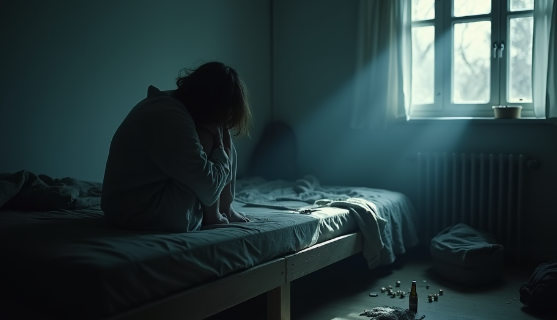Depression is a serious mental health condition that affects millions of people worldwide. It can have profound effects on both mental and physical well-being, including hormonal balance. This article explores the connection between depression and hormones, offering insights into how hormone optimization therapy may play a role in managing depressive symptoms.
Table of Contents
Key Takeaways
- Depression is a complex mental health disorder that can affect hormonal balance
- Hormonal imbalances may contribute to or worsen depressive symptoms
- The hypothalamic-pituitary-adrenal (HPA) axis plays a crucial role in both mood regulation and hormone production
- Cortisol, often called the “stress hormone,” is frequently elevated in people with depression
- Thyroid hormones and sex hormones like estrogen and testosterone can also be affected by depression
- Hormone optimization therapy may offer potential benefits for some individuals with depression
- A comprehensive approach to depression treatment should consider both mental health and hormonal factors
The Hormonal Connection to Depression and Hormones

Depression is more than just feeling sad or down. It’s a complex mental health condition that can have far-reaching effects on the body, including the endocrine system. The relationship between depression and hormones is bidirectional, meaning that hormonal imbalances can contribute to depression, and depression can lead to hormonal changes.
The HPA Axis and Depression
The hypothalamic-pituitary-adrenal (HPA) axis is a key player in both mood regulation and hormone production. This system involves a complex interplay between the hypothalamus, pituitary gland, and adrenal glands. In people with depression, the HPA axis often becomes dysregulated, leading to changes in hormone levels.
One of the most studied hormones concerning depression is cortisol. Often referred to as the “stress hormone,” cortisol levels are frequently elevated in individuals with depression. This elevation can lead to a range of symptoms, including sleep disturbances, changes in appetite, and difficulty concentrating.
Thyroid Function and Mood
The thyroid gland plays a crucial role in regulating metabolism and energy levels. Research has shown that thyroid dysfunction is more common in people with depression than in the general population. Both hypothyroidism (underactive thyroid) and hyperthyroidism (overactive thyroid) can cause symptoms that mimic or exacerbate depression.
For example, hypothyroidism can lead to fatigue, weight gain, and feelings of sadness – all symptoms that overlap with depression. On the other hand, hyperthyroidism can cause anxiety, irritability, and sleep problems, which can worsen depressive symptoms.
Sex Hormones and Depression
The sex hormones estrogen and testosterone also play a role in mood regulation. Fluctuations in these hormones can contribute to depressive symptoms, particularly in women during times of hormonal change such as puberty, pregnancy, and menopause.
Low testosterone levels in men have been associated with an increased risk of depression. Some studies have found that testosterone replacement therapy may improve mood in men with low testosterone and depressive symptoms.
Depression and Hormones: Its Effects on Daily Life

Depression can have a significant impact on a person’s daily functioning and quality of life. It’s not just about feeling sad; depression can affect every aspect of a person’s existence.
Work and Productivity
One of the most noticeable effects of depression is on work performance and productivity. People with depression often struggle with concentration, motivation, and energy levels, making it difficult to meet job demands or maintain consistent performance.
Many individuals with depression report feeling overwhelmed by even simple tasks, leading to procrastination and a decline in work quality. This can create a vicious cycle, as poor work performance can lead to increased stress and worsening of depressive symptoms.
Relationships and Social Life
Depression can take a heavy toll on relationships and social interactions. People with depression may withdraw from friends and family, feeling unable to engage in social activities or maintain connections. This isolation can further exacerbate depressive symptoms.
Communication can also become challenging for those with depression. They may struggle to express their feelings or needs, leading to misunderstandings and conflicts in relationships. Partners, friends, and family members may feel helpless or frustrated, not knowing how to provide support.
Physical Health and Self-Care
Depression often manifests in physical symptoms and can impact a person’s ability to take care of themselves. Common physical symptoms include:
- Changes in appetite and weight
- Sleep disturbances (either insomnia or excessive sleeping)
- Chronic pain or unexplained aches
- Digestive problems
Self-care routines may fall by the wayside as individuals with depression struggle with low energy and motivation. This can lead to neglect of personal hygiene, poor diet, lack of exercise, and other health-compromising behaviors.
Optimization Depression and Hormones Management

While traditional treatments for depression typically focus on psychotherapy and antidepressant medications, there’s growing interest in the potential role of hormone optimization in managing depressive symptoms.
The Potential of Depression and Hormones Therapy
Hormone optimization therapy aims to restore balance to the body’s hormonal systems. For some individuals with depression, addressing underlying hormonal imbalances may help alleviate symptoms and improve overall well-being.
For example, treating hypothyroidism with thyroid hormone replacement has been shown to improve mood in many patients. Similarly, testosterone replacement therapy in men with low testosterone levels may help reduce depressive symptoms.
Considerations for Hormone Optimization
It’s important to note that hormone therapy is not a one-size-fits-all solution for depression. Each person’s hormonal profile is unique, and what works for one individual may not be appropriate for another. Additionally, hormone therapy carries its own risks and potential side effects.
Before considering hormone optimization for depression, it’s crucial to undergo comprehensive testing to assess hormone levels and overall health. This should be done under the guidance of a qualified healthcare provider who can interpret results and develop an appropriate treatment plan.
Lifestyle Factors in Depression and Hormonal Health

While medical treatments play a crucial role in managing depression and hormonal imbalances, lifestyle factors can also have a significant impact on both mental health and hormone levels.
Depression and Hormones:The Role of Nutrition
Diet can influence both mood and hormone production. Certain nutrients are particularly important for mental health and hormonal balance:
- Omega-3 fatty acids: Found in fatty fish, flaxseeds, and walnuts, these may help reduce inflammation and support brain health.
- B vitamins: Essential for neurotransmitter production and energy metabolism.
- Vitamin D: Often low in people with depression, vitamin D plays a role in mood regulation and hormone synthesis.
- Zinc and magnesium: These minerals are involved in numerous biochemical processes related to mood and hormone function.
A balanced diet rich in whole foods, lean proteins, fruits, vegetables, and healthy fats can provide the nutrients needed for optimal mental and hormonal health.
Depression and Hormones: Exercise and Its Benefits
Regular physical activity has been shown to have powerful effects on both mood and hormone levels. Exercise can:
- Increase the production of endorphins, the body’s natural mood-boosters
- Reduce levels of stress hormones like cortisol
- Improve sleep quality, which is crucial for hormonal balance
- Enhance overall well-being and self-esteem
Even moderate exercise, such as a 30-minute walk most days of the week, can have significant benefits for mental health and hormonal balance.
Stress Management Techniques
Chronic stress can disrupt hormonal balance and exacerbate depressive symptoms. Implementing stress management techniques can help regulate the HPA axis and improve overall well-being. Some effective stress-reduction strategies include:
- Mindfulness meditation
- Deep breathing exercises
- Progressive muscle relaxation
- Yoga or tai chi
- Journaling
- Engaging in hobbies or creative activities
The Importance of Sleep in Depression and Hormonal Health
Sleep plays a crucial role in both mental health and hormonal balance. Many people with depression experience sleep disturbances, which can further disrupt hormone production and worsen depressive symptoms.
The Sleep-Hormone Connection
During sleep, the body regulates the production of several important hormones, including:
- Growth hormone: Essential for tissue repair and metabolism
- Melatonin: Regulates the sleep-wake cycle
- Cortisol: Levels typically drop at night and rise in the morning
Disrupted sleep can lead to imbalances in these and other hormones, potentially contributing to or exacerbating depressive symptoms.
Improving Sleep Quality
Establishing good sleep hygiene can help improve both sleep quality and hormonal balance. Some tips for better sleep include:
- Maintaining a consistent sleep schedule
- Creating a relaxing bedtime routine
- Keeping the bedroom cool, dark, and quiet
- Avoiding screens for at least an hour before bed
- Limiting caffeine and alcohol, especially in the evening
For individuals with persistent sleep problems, working with a healthcare provider to address underlying issues may be necessary.
The Role of Social Support in Depression and Hormones Recovery
Strong social connections can play a vital role in managing depression and supporting overall mental and hormonal health. Social support can help reduce stress, improve mood, and even influence hormone levels.
Building a Support Network
Creating and maintaining a support network is crucial for individuals dealing with depression. This network may include:
- Family members
- Close friends
- Support groups
- Mental health professionals
- Colleagues or mentors
Having people to talk to, share experiences with, and rely on during difficult times can make a significant difference in the recovery process.
The Benefits of Social Connection
Social connections can provide numerous benefits for individuals with depression:
- Emotional support and understanding
- Practical help with daily tasks
- Motivation to engage in healthy behaviors
- A sense of belonging and reduced isolation
- Opportunities for positive experiences and joy
Encouraging individuals with depression to maintain and strengthen their social connections can be an important part of a comprehensive treatment approach.
Integrative Approaches to Depression Treatment
An integrative approach to depression treatment considers the whole person, including mental, physical, and hormonal factors. This approach may combine traditional treatments with complementary therapies and lifestyle interventions.
Combining Traditional and Alternative Therapies
An integrative treatment plan for depression might include:
- Psychotherapy (such as cognitive-behavioral therapy or interpersonal therapy)
- Medication (antidepressants when appropriate)
- Hormone optimization therapy (if indicated by testing)
- Nutritional counseling and supplementation
- Mind-body practices (like meditation or yoga)
- Exercise programs
- Sleep optimization strategies
The goal is to address all aspects of a person’s health to achieve the best possible outcomes.
Personalized Treatment Plans
Every individual’s experience with depression is unique, and treatment plans should be tailored to each person’s specific needs, symptoms, and preferences. Regular monitoring and adjustment of the treatment plan may be necessary to ensure optimal results.
The Future of Depression Treatment: Hormonal Perspectives
As research continues to uncover the complex relationships between hormones and mental health, new approaches to depression treatment may emerge. Future directions in this field may include:
- More sophisticated hormone testing methods
- Targeted hormone therapies for specific types of depression
- Greater integration of hormonal health into mental health treatment protocols
- Development of new medications that target both mood and hormonal systems
Continued research in this area holds promise for more effective, personalized treatments for depression that address both mental and hormonal aspects of the condition.
Conclusion
Depression is a complex condition with far-reaching effects on both mental and physical health, including hormonal balance. While traditional treatments like psychotherapy and medication remain important, considering the role of hormones in depression can lead to more comprehensive and effective treatment approaches.
Hormone optimization therapy, when appropriate, may offer benefits for some individuals with depression. However, it’s crucial to approach this option under the guidance of qualified healthcare providers who can assess individual needs and potential risks.
A holistic approach to depression management that considers lifestyle factors, social support, and integrative therapies alongside medical treatments offers the best chance for recovery and improved quality of life. As research in this field continues to advance, we can look forward to more targeted and effective treatments that address both the mental and hormonal aspects of depression.
| Hormone | Role in Depression | Potential Interventions |
|---|---|---|
| Cortisol | Often elevated in depression, can contribute to sleep disturbances and cognitive issues | Stress reduction techniques, sleep optimization, medication in some cases |
| Thyroid Hormones | Imbalances can mimic or exacerbate depression symptoms | Thyroid function testing, hormone replacement if needed |
| Testosterone | Low levels associated with increased depression risk in men | Testosterone replacement therapy when indicated |
| Estrogen | Fluctuations can contribute to mood changes, particularly in women | Hormone therapy may be considered, especially during menopause |
| Melatonin | Regulates sleep-wake cycle, often disrupted in depression | Sleep hygiene improvements, melatonin supplements in some cases |
| Can alleviate symptoms for many people, and relatively quick action | Benefits | Considerations |
|---|---|---|
| Psychotherapy | Addresses thought patterns and behaviors, provides coping strategies | May take time to see results, requires active participation |
| Antidepressant Medication | Can alleviate symptoms for many people, relatively quick action | Potential side effects, may need to try different medications |
| Hormone Optimization | May address underlying hormonal imbalances contributing to depression | Requires thorough testing, not appropriate for everyone |
| Lifestyle Changes (diet, exercise, sleep) | Can improve overall health and well-being, support hormonal balance | Requires consistent effort and commitment |
| Integrative Approach | Addresses multiple aspects of health, may lead to more comprehensive improvement | May be more complex to manage, requires coordination between providers |
- Key lifestyle factors that can support both mental health and hormonal balance:
- Regular physical exercise (aim for at least 30 minutes most days)
- A balanced diet rich in whole foods, lean proteins, and healthy fats
- Consistent sleep schedule and good sleep hygiene practices
- Stress management techniques like meditation or deep breathing exercises
- Maintaining strong social connections and support systems
- Limiting alcohol and caffeine consumption
- Avoiding smoking and drug use
- Engaging in enjoyable activities and hobbies regularly
Rediscover Hope and Happiness with Revv Health. Depression can be overwhelming, but you don’t have to face it alone. At Revv Health, we understand the challenges and are dedicated to helping you break free from the cycle of depression. Through compassionate care and tailored solutions, we’ll work with you to restore your emotional well-being and build resilience. Your path to healing starts here. Reach out to Revv Health today, and let’s move forward together toward a life filled with hope and possibility


